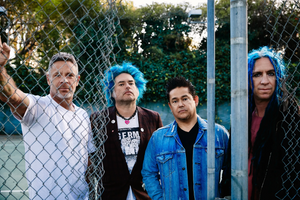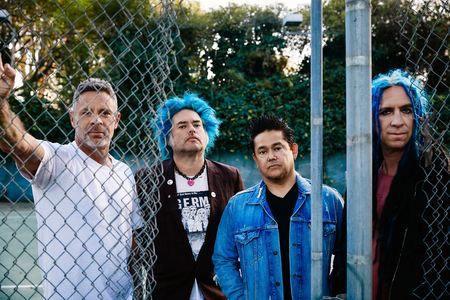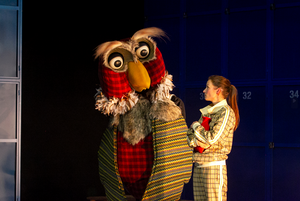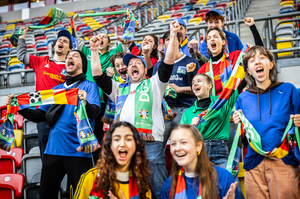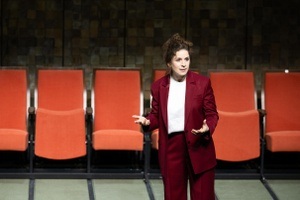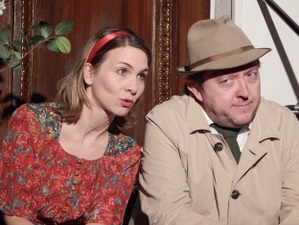Die Orestie. Nach dem Krieg
In the organizer's words:
The Oresteia. After the War - after Aeschylus in an adaptation by Tamara Trunova and Stas Zhyrkov from the Ukrainian by Sebastian Anton - Premiere on March 23, 2024 - Schauspielhaus, Großes Haus - Schauspiel
The year is 2033 and an international court is opening in Crimea to hear a case that touches on fundamental questions of human existence and marks the transition from war to a peaceful social order. After Orest Horets brutally murders his mother Kateryna Horets and her lover Pavlo Davydov, he is put on trial. The accused, who is haunted by his mother's vengeful ghosts and defended in court by his sister Elektra, does not deny the crime. His motive is revenge for the death of his father - a Ukrainian war hero who was lured into a trap and stabbed to death by his Russophile wife and her lover.
The story is more than a private family tragedy. The central theme of the play is how a state and a society face an uncertain future in the face of war, suffering, betrayal and inner-family turmoil. The text by Ukrainian author and director Tamara Trunova thus refers back to its origins: Aeschylus' "Oresteia". In her adaptation for the Düsseldorfer Schauspielhaus, Trunova interweaves text passages from the only almost completely preserved tragedy trilogy of ancient Greek theater with a plot set in the future. After the war.
The production is directed by Ukrainian theater maker Stas Zhyrkov, who has already staged the "Odyssey" at the D'haus with people from Ukraine and Düsseldorf. In addition to actors from the ensemble, his new work will also feature Ukrainian actress Vitalina Bibliv (Golden Gate Theatre Kyiv, among others) and Ukrainian women who now live in Düsseldorf. With regard to the material, Zhyrkov remarks: "In Aeschylus' 'Oresteia', people have to create a new system for living together after the barbarism. At first, they don't know how this can succeed. And we don't know today either. Will there be a war crimes tribunal, will there be justice? What will become of the occupied territories? How do we deal with people who have collaborated? What is the way out of corruption? How can we be part of the European community? And how can we continue to live alongside Russia? Because one thing is clear: Russia will not disappear. The world should not only think about Ukraine, but also about Russia and Belarus. What does the future look like for the people there?"
This content has been machine translated. Terms and Conditions for lotteries


